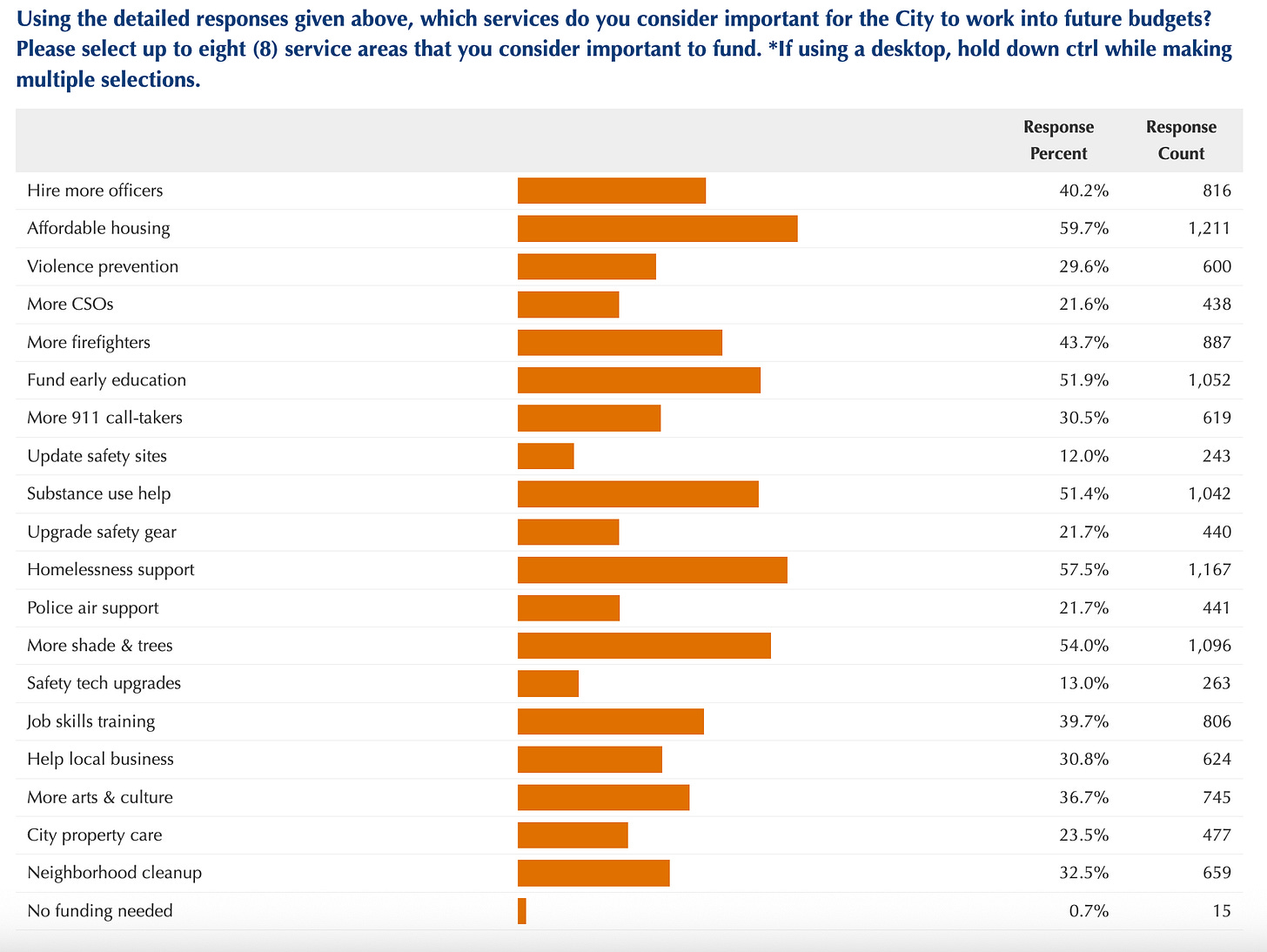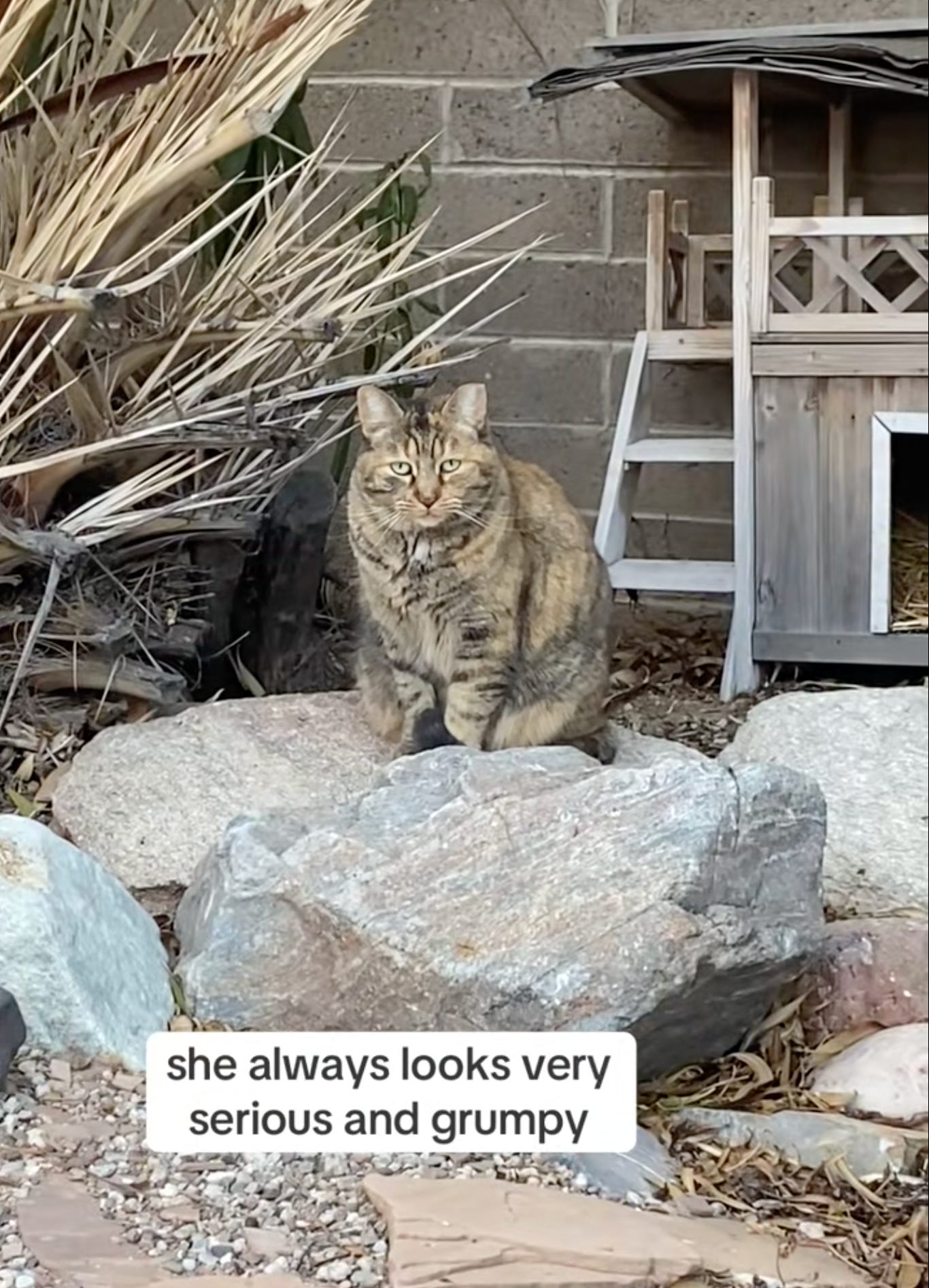Million-dollar questions
Breaking it all down … Things you can’t cut … And that's kind of a double-edged sword.
When Tucson and Pima County officials finally decide on their annual budgets in a month or so, they’ll end up spending somewhere around $4 billion.
That’s a big number, isn’t it?
But like all big numbers, it’s actually made up of a bunch of smaller numbers, even if those numbers might seem not-so-small to a regular person working on their family budget.
To get a handle on how local elected officials spend your tax dollars, we’re breaking it down to one basic question: What can they buy with $1 million?
First, a word of warning: The numbers you’re about to see are meant to illustrate the costs behind various hot-button issues that pop up at public meetings, along with some that local residents pointed to in a recent survey.
They are not insider information about the future direction of the Tucson or Pima County budgets. Officials are still finalizing the details before they adopt next year’s multi-billion-dollar budgets in June.
20,000 potholes: The cost of filling one pothole is about $50, depending on its size.
23 miles of basic road repairs: It costs about $44,000 a mile to apply a fog sealant, which extends the road’s useful lifespan. The City of Tucson maintains approximately 2,600 miles of roads.1
6 police officers: The City could hire, train and equip six new officers for about a million bucks, per figures provided by the City for the now-failed Proposition 414. That issue came up at last week’s Tucson City Council meeting, as the Council members grapple with trying to improve response times and meet their targeted number of uniformed officers.
15 community service officers: The City could also bring on board 15 new CSOs, figures from Prop 414 suggest. The City has been using CSOs, which cost less than their fully equipped and trained counterparts, to take reports, handle traffic accidents and respond to lower-priority calls.
20 young firefighters: The City pays new firefighters about $50,000 annually, not including benefits, when they complete the academy.
18 months of City Council salaries: The Mayor and Council members got big, voter-approved pay bumps over the past two years. The Mayor is now paid about $121,000 annually and each Council member gets $96,600.
5 weeks of fare-free transit: The back of the napkin math says it costs about $10 million per year to keep mass transit fare-free. The Council is investigating other ways to raise revenue, but now that COVID funding has dried up, it looks like the City could start charging to ride later this year.2
74 housing vouchers: Tucson could pay for 74 people to get one-room apartments for a year, based on numbers from HUD. Both the city and county get a fixed amount from HUD, which they can use to help people who are unhoused, but still have some kind of monthly income.
1 roof: Back in February, the Pima County Supervisors awarded a $1.2 million contract to replace the roof at the main jail building. The jail is in bad shape, and replacing a roof might actually be one of the cheapest options. County officials are still talking about replacing the jail itself, at a cost of more than $800 million.
728 people spending a week at the Pima County jail: Putting someone in jail for a week costs the city roughly $1,400. So $1 million would house 728 people for a single week. Due to the cost, Tucson City Council members again are considering sending their inmates to other jails, as they discussed at their last meeting.
300,000 gallons of gas: The County Supervisors just approved $1.5 million for the next six months’ worth of gas for its vehicle fleet. The County is committed to expanding its fleet of electric vehicles, but it also uses plenty of other vehicles — think patrol cars used by the Pima County Sheriff’s Department — that still rely on gas.
3 days of running migrant shelters: Back when Pima County officials were in charge of taking care of asylum seekers, officials spent about $2 million (in federal dollars) every week during the peak in late 2023. The County no longer provides services to asylum seekers, partly due to the fact that so few come through Tucson anymore.
Not everything is an ongoing cost. Elected officials are often asked to invest in a single payment to capitalize on an opportunity or to meet an unanticipated shortfall.
Get a housing project off the ground: The County Supervisors gave a $1 million loan in January for a 64-unit affordable housing project. As the housing crisis drags on, local officials are getting more involved in these types of projects.
Mid-stream changes: Tucson and Pima County are working on improving Fort Lowell Park, and the Council had to add about $1 million earlier this month to cover the costs of better designs, figure out a more specialized construction plan, and deal with some unexpected repairs at the Fort Lowell Museum.
Running elections: The City of Tucson paid Pima County $1.5 million in April to run elections this year. Tucsonans already voted on Prop 414 and they have City Council elections coming up this summer and fall.
More than a year of the City’s share of PEEPs: The City paid $750,000 to keep the PEEPs early education program going this year. Now the Council members are questioning whether they can afford to keep funding it.
Help those in need: The County could provide medication-assisted substance abuse treatment in rural communities for about three years. The County is spending $300,000 on that program, pulled from the opioid settlement money.
Two years of repairing homes: The City puts up about $500,000 to help low-income residents who need emergency home repairs. This program could also be on the chopping block as the Council prioritizes other programs in its budget discussion.
Mariachi forever: The County could pay its $8,000 share of the La Frontera Tucson Mariachi Conference for the next 125 years with $1 million. The supervisors ponied up the $8,000 at their April 15 meeting, which they felt compelled to do after the federal funding freeze screwed up funding to local nonprofits.
Covering the tweaks and cuts in budgets and how they impact the community requires near constant vigilance. Upgrade your subscription today to keep us thumbing through these public documents.
Swinging for the fences: U.S. House Republicans have their sights set on building more wall along the U.S.-Mexico border. A lot more. The Homeland Security Committee is recommending another $46.5 billion for border walls. The committee’s news release didn’t say where the wall would be built, but the money would go toward 701 miles of primary wall, 900 miles of river barriers, 629 miles of secondary barriers and replacing 141 miles of vehicle and pedestrian barriers.
Make elections optional again: A superior court judge struck down the part of Arizona’s Election Procedures Manual that says county supervisors have to certify election results — and the ruling could have serious impacts on election security, not to mention a pending court case against a Cochise County supervisor, Votebeat’s Jen Fifield reports. Giving supervisors discretion in certifying vote counts leaves the door open to more cases like that of Supervisor Tom Crosby, who refused to certify the 2022 election results and now faces felony counts of conspiracy and interference with an election officer.
Talking shop: U.S. Rep. Juan Ciscomani was on KJZZ’s “The Show” last week, talking about balancing the drive to reduce regulations with the need to address environmental concerns in his new role as vice chair of the Conservative Climate Caucus. He highlighted making it easier to dig up the minerals that are needed to build clean energy technology, along with protecting clean energy tax credits. Ciscomani also talked a little about the potential for Medicaid cuts, saying he was focused on cutting $100 billion in improper payments to able-bodied adults with no kids.
Macabre accounting: The Pima County jail got some bad publicity this month when The New Yorker reported on malnourishment at the jail, including a 2022 case where a woman lost 50 pounds over four months. A judge took one look at her and dismissed the charges. She died two months later. The case was just one of many examples since Pima County hired NaphCare to provide health care at the jail in 2021, the Arizona Luminaria’s John Washington reports. But due to how deaths are classified, many of them aren’t formally connected to the jail, since they occur after the person was released.
Making every day Caturday: Inspired by her love of cats and the dozens of feline friends that live near her Tucson home, Courtney Gustafson created a massively popular TikTok account, and now a book that’s getting released today, KGUN’s Alex Dowd reports. The book, “Poets Square: A Memoir in Thirty Cats,” details the daily lives and social dynamics of the stray cats in her neighborhood.
We’re kind of like those stray cats. Just an independent news outlet trying to make our way in the world.
Long road: After three years of preparation, Tucson’s first community of energy-efficient, affordable tiny homes is set to open in early May, KOLD’s Renee Romo reports. Desiree Cook, the head of I Am You 360, says the homes are designed for young adults who age out of foster care.
President Donald Trump waded into Tucson politics on Monday night, endorsing Republican Congressman Juan Ciscomani for another term.
“Juan Ciscomani has my Complete and Total Endorsement for Re-Election — HE WILL NOT LET YOU DOWN!” Trump wrote.
More than 2,000 followers shared the post - known as “re-truths” - on Truth Social.
Ciscomani already is being targeted locally by Democrats, more than 18 months before the November 2026 election, while activists are staging public town halls in Tucson that focus on deeply unpopular decisions and actions by the Trump administration.
One of Ciscomani’s political rivals, CD6 Democratic hopeful Mo Goldman, reacted quickly online to the endorsement.
“Great news everyone! I've avoided the dreaded Trump endorsement for this race. Phew.” Goldman wrote.
We could write a book about how streets are paved here in the Old Pueblo. There are many, many types of road repairs, from rebuilding the entire road to simple pavement preservation like fog sealing.
Vice Mayor Lane Santa Cruz pointed out at the Council’s last meeting that these calculations can be disingenuous, since city officials don’t really know what ridership would be if fares were re-introduced.











What an information – filled issue! The million dollar pricing helped me think about the choices that Tucson has to make. The federal $46B for a wall that isn't needed provided an incredible example of waste in federal spending. Ciscomani's position on Medicaid cuts is disingenuous. And thanks for the link to the report on tiny homes. A real contribution to our community that will have lasting impact.
I’m always very interested to know WHICH environmental regulations a politician thinks is onerous. The ones that ensure clean air? The ones that ensure clean water? The ones that require a public process when issuing new permits?
According to Project 2025, they want to dismantle the “Potential To Emit” standard for permit classification. I won’t get into the details, but going from potential to “actual emissions” sounds nice, but it’s nearly impossible to measure year-to-year actuals in advance for regulation and permitting.
I’d be very interested to know which regulations Congressman Ciscomani thinks needs to be cut. It’s such an often-used sentiment, but rare to see anyone follow it up with more detail.